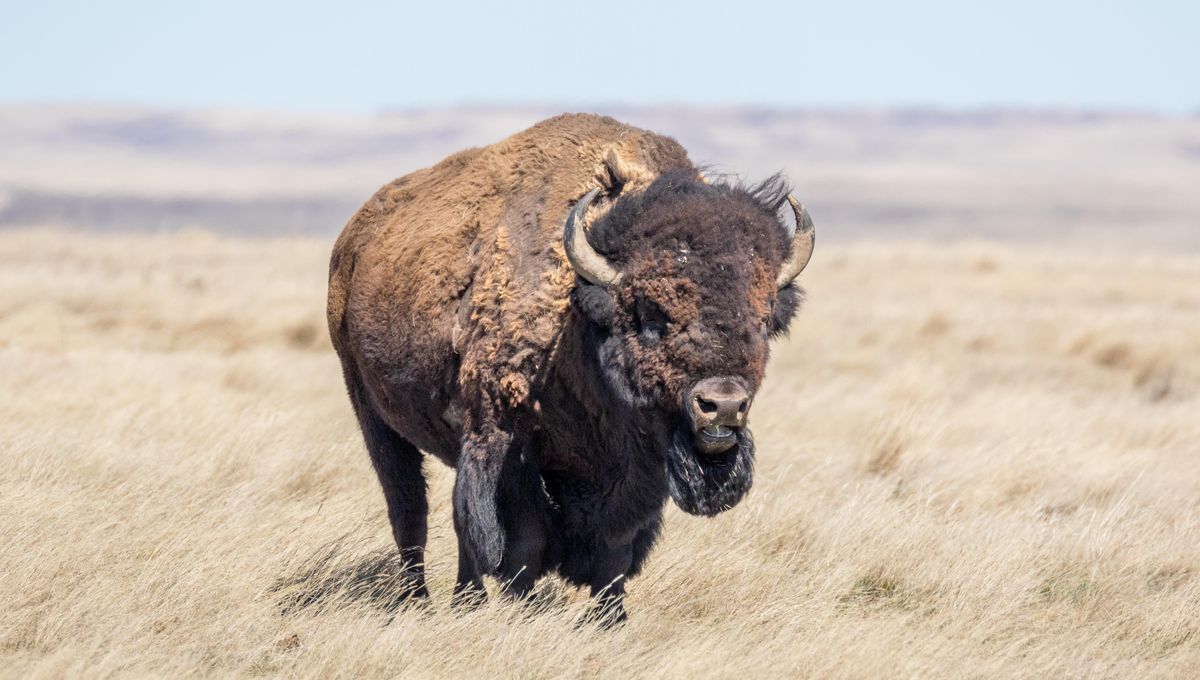
Russian scientists have introduced 12 bison to the Russian Arctic in the hope they will restore the ancient ecosystem that was once maintained by woolly mammoths. In addition, the scientists involved hope these animals will help slow down the damage being caused by climate change.
The bison (Bison bison bison – easy to remember), also known as plains bison and buffalos, were imported from a nursery in Denmark and traveled 5,000 miles (8,000 kilometers) by road to the Ingilor Nature Park, in the northern Yamal-Nenets Autonomous Area. The journey took three weeks, but before they can start to explore the 2.2 million acres (900,000 hectares) of land available to them, they have to undergo a month-long quarantine. Their health is being monitored by park employees.
In May 2022, the leaders of the Pleistocene Park, a non-profit in Yakutia, approached the Department of Natural Resources and Environment of the Yamal-Nenets Autonomous Area and proposed an exchange. The aim was for Ingilor Nature Park to send 14 of their existing muskox to Yakutia, while the Pleistocene Park would buy plains bison – four males and eight females – for Yamal.
This may seem bizarre on the face of it, but it is built on a sound and inspiring idea. The director of the Pleistocene Park’s restoration project, Nikita Zimov, has been working to help rewild the Arctic with animals that either lived in the area during the last ice age or who could survive there now. It is hoped that the presence of large herbivores, like bison and muskox, will help restore lost ecosystems and mitigate climate change.
“Buffalos easily adapt to the Arctic because, historically, it is their natural habitat, and they can take the role of mammoths, which became extinct 11,000 years ago,” the Yamal-Nenets Autonomous Area Department of Natural Resources and the Environment said in a statement.
In addition, the appearance of these animals may help promote tourism and encourage visitors to understand the role herbivores play in shaping and maintaining landscapes and ecosystems.
“The proximity of the habitats of the plains bison and musk buffalo is expected to attract more tourists to this protected nature area in the Arctic and will also help bring to life the idea of creating an interactive site for people to get acquainted with and watch animals which lived in the late Pleistocene Epoch,” the Yamal Government website states. This was a period “when, along with plains bison and musk buffalo, the tundra-steppe was inhabited by mammoths, the woolly rhinoceros and other representatives of megafauna,” the Yamal Government website reports.”
However, not everyone is convinced. Despite the idea being novel, the introduction of large fauna to the area may have unforeseen consequences.
These are the concerns raised by Mary Edwards, an emerita professor of physical geography at the University of Southampton in the UK. “The Pleistocene ecosystem was treeless and had quite thick soils”, Edwards explained to LiveScience. “What you can see in geological sections of these kinds of landscapes is that, over time, they’re storing soil carbon — it’s frozen by the permafrost and it’s basically a big carbon stack.”
The worry is that animals could increase the loss of permafrost, leading to more water in the soil and a further loss of carbon. However, this is far from certain, and Edwards believes that there is certainly a case to be made for the introduction of large animals from the Pleistocene.
Source Link: Why Is Russia Introducing Bison To Replace Extinct Woolly Mammoths?